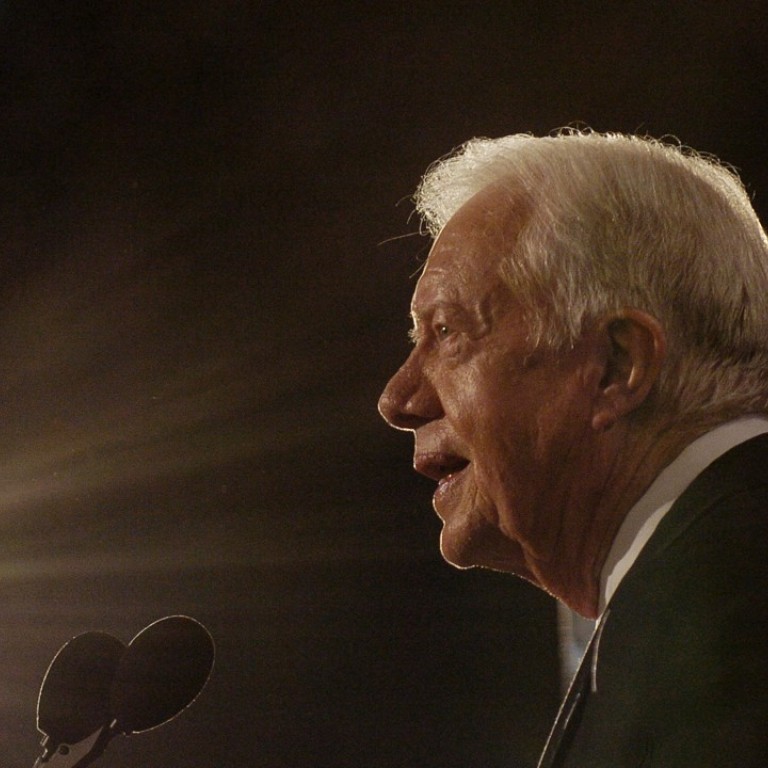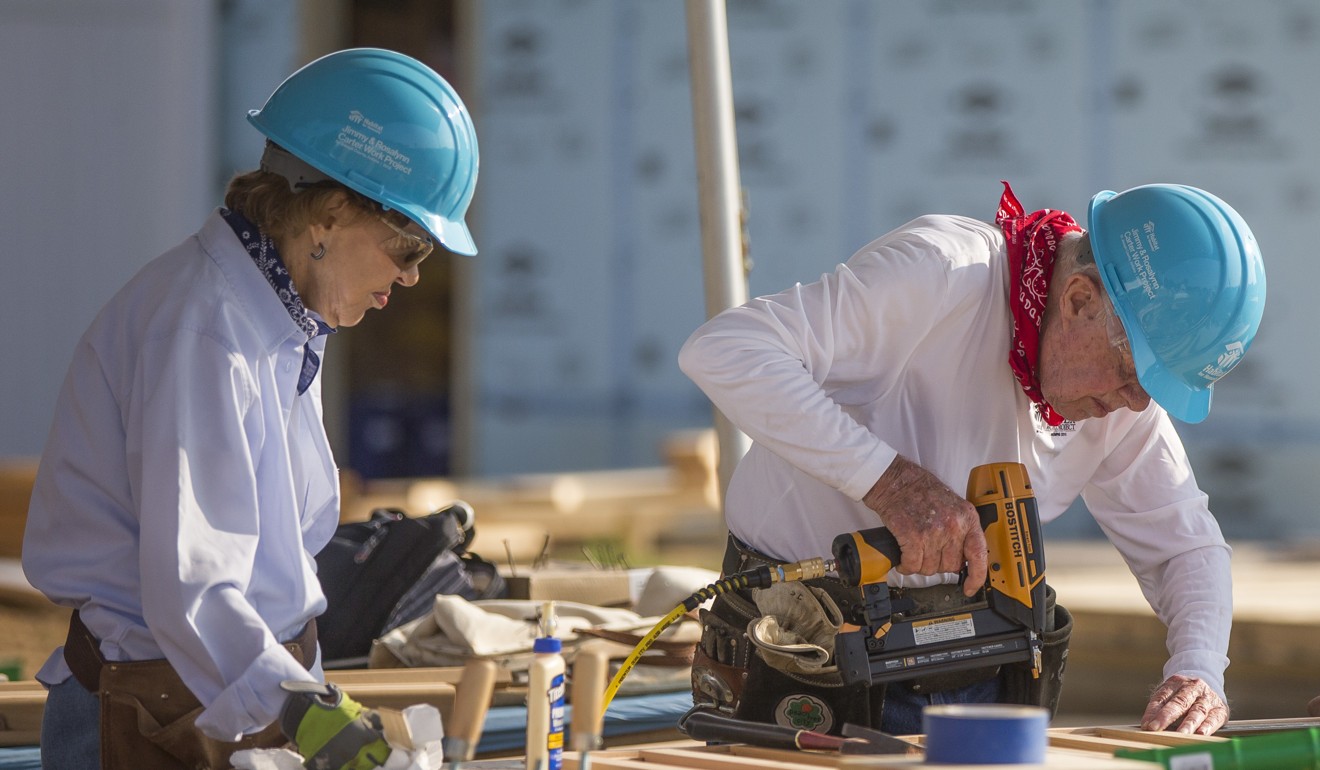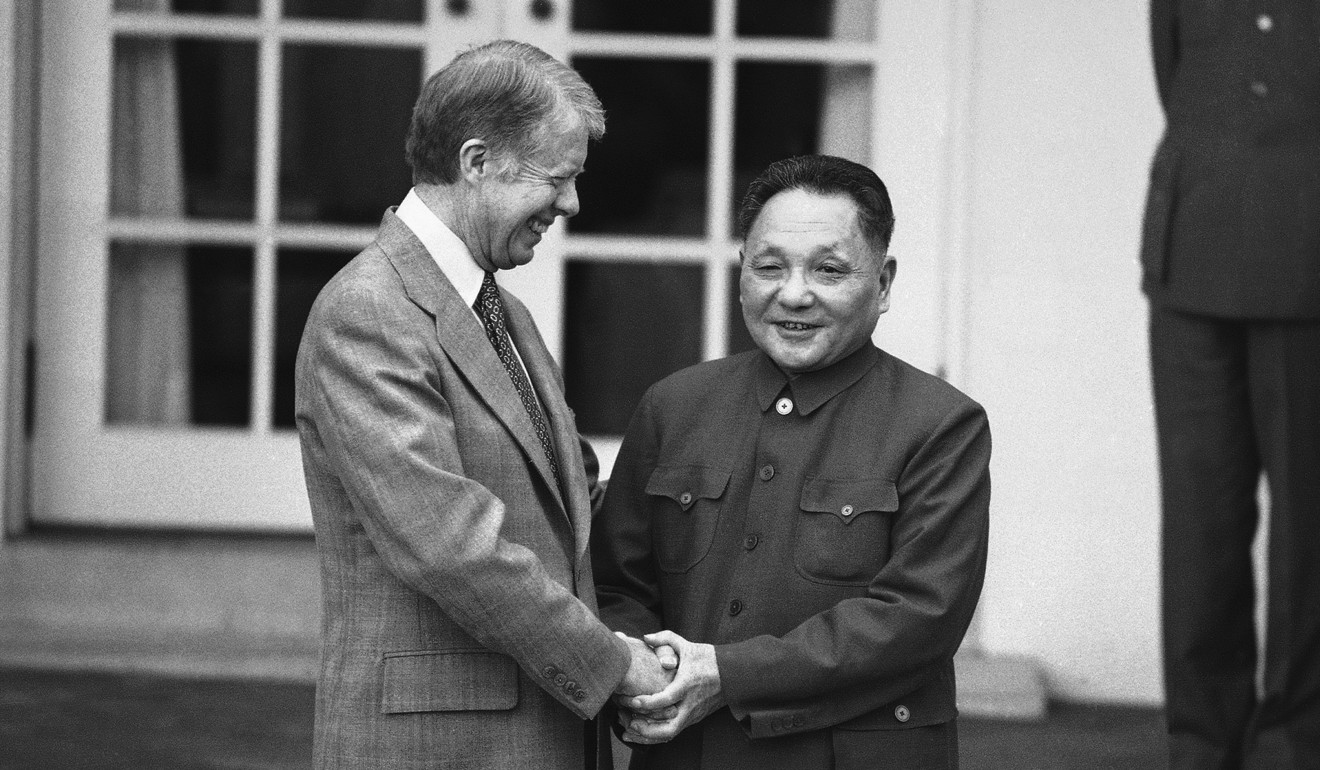
What Jimmy Carter can teach leaders in the era of Trump about relations with China and humble service
Chi Wang says the former US president, who normalised diplomatic relations with China, was exemplary not only in his understanding of international affairs but in his record of service without seeking the spotlight
As a first-generation Chinese-American invested both in the well-being of my home country and in its relationship with the country where I was born, the current political and global climate is especially disheartening.
I know that the US and the US-China relationship have faced many periods of difficulty and hardship over the years. I have lived in the US for over 70 years and, yet, I do not ever recall feeling as hopeless and concerned as I do now.
While trying to look ahead and consider how we might move forward together, I find myself thinking about those past leaders who I admire most and what we can learn from them. Forefront in my thoughts is a president who is often overlooked in favour of leaders more interested in the spotlight – Jimmy Carter.
While events like the Iran hostage crisis and his failed re-election campaign might cloud people’s memories of the US’ 39th president, to me, Carter is first and foremost a humble and kindhearted man. Secondly, he is responsible for pushing through the normalisation of US relations with China.
Instead, he has dedicated his life to service, building homes for Habitat for Humanity, teaching Sunday school at his local church and advocating for human rights.
I had the great honour of meeting Carter several times during his presidency; the strong character he exemplifies now was evident during his years in office as well. This humility and dedication to others is what a president should embody.

In my capacity as the head of the Chinese section at the Library of Congress, I often met Carter’s China adviser Michael Oxenberg and national security adviser Zbigniew Brzezinski.
During this period, I also travelled to China where I met Leonard Woodcock, who was serving as chief of the US Liaison Office in Beijing and would later become the first US ambassador to China. From these various meetings, it was clear that Carter wanted peace with China and new, stronger ties. Of these important architects of normalisation, only Carter is still alive.
On January 1, 1979, official diplomatic relations between the US and China were established and later that month Deng Xiaoping arrived in the US. I had the rare opportunity to welcome Deng and spend a few moments with him while he was in Washington. It was clear to me that Deng wanted to open up China to the world, improve China’s economy and better the lives of the Chinese people.
However, that is not something Deng could have accomplished on his own. I visited China in 1972 to help establish cultural and educational exchanges on behalf of the US government. It was my first time back in China since I left in 1949. The country I left had been torn apart by years of war, but even those bleak times could not compare to the China I saw during that visit.

Famine and internal strife had left the country poorer than I ever could have imagined. I was shocked by how much the country had changed. China needed help, and a powerful new ally, in order to pull itself out of that hole. Carter’s new ties with China were exactly what the country needed.
Without normalisation of ties during Carter’s presidency, China’s economic growth would have been a much slower and more arduous process
As China became a partner to the US against the Soviet Union, new economic avenues were opened up. Soon, the strategic relationship was replaced by an economic one and while the Soviet Union lapsed as an enemy tying the two countries together, the economic bonds only continued to grow.
In many ways, Carter’s decision to move forward with normalisation saved China. Without normalisation of ties during Carter’s presidency, China’s economic growth would have been a much slower and more arduous process and might never have reached the same unprecedented levels.
Now, the US and China are enacting tariffs and turning away from each other economically. When the US and China no longer have their economic connections to serve as a touchstone for cooperation, what will remain of the bilateral relationship? Tensions, distrust, and animosity will only grow without trade offering an economic incentive for the two countries to get along.
Carter is a role model not just for American presidents, but for all leaders, including those in China who focus on their own personal wealth and power.
We need to demand leaders who understand the nuances of international affairs and see the benefit in promoting stronger international ties, who truly put the needs of their country above their own personal pride or successes, who listen to the advice of experts and seek not to make themselves great but to make the world a better place.
Chi Wang, a former head of the Chinese section of the US Library of Congress and former university librarian at the Chinese University of Hong Kong, is president of the US-China Policy Foundation

